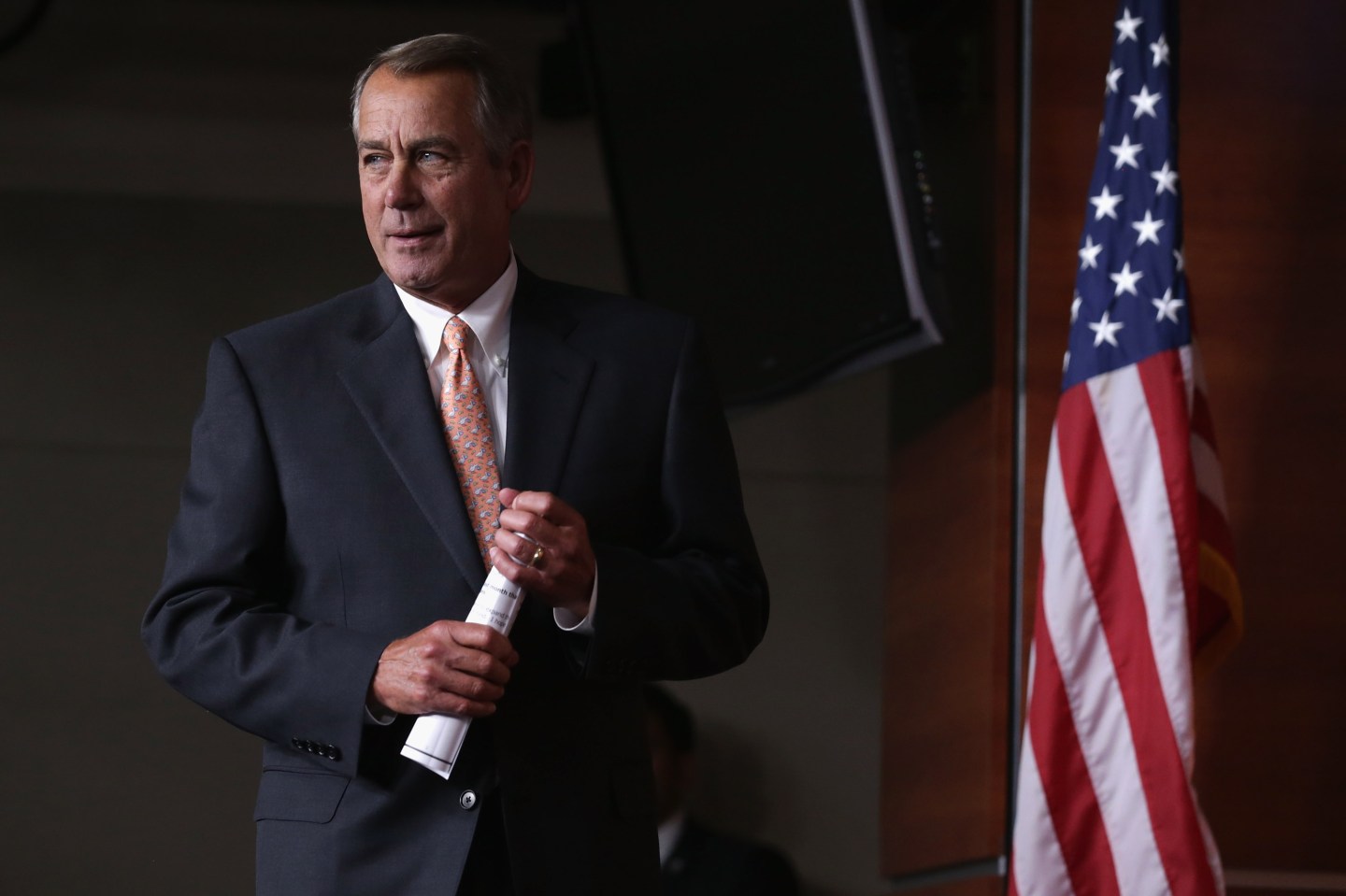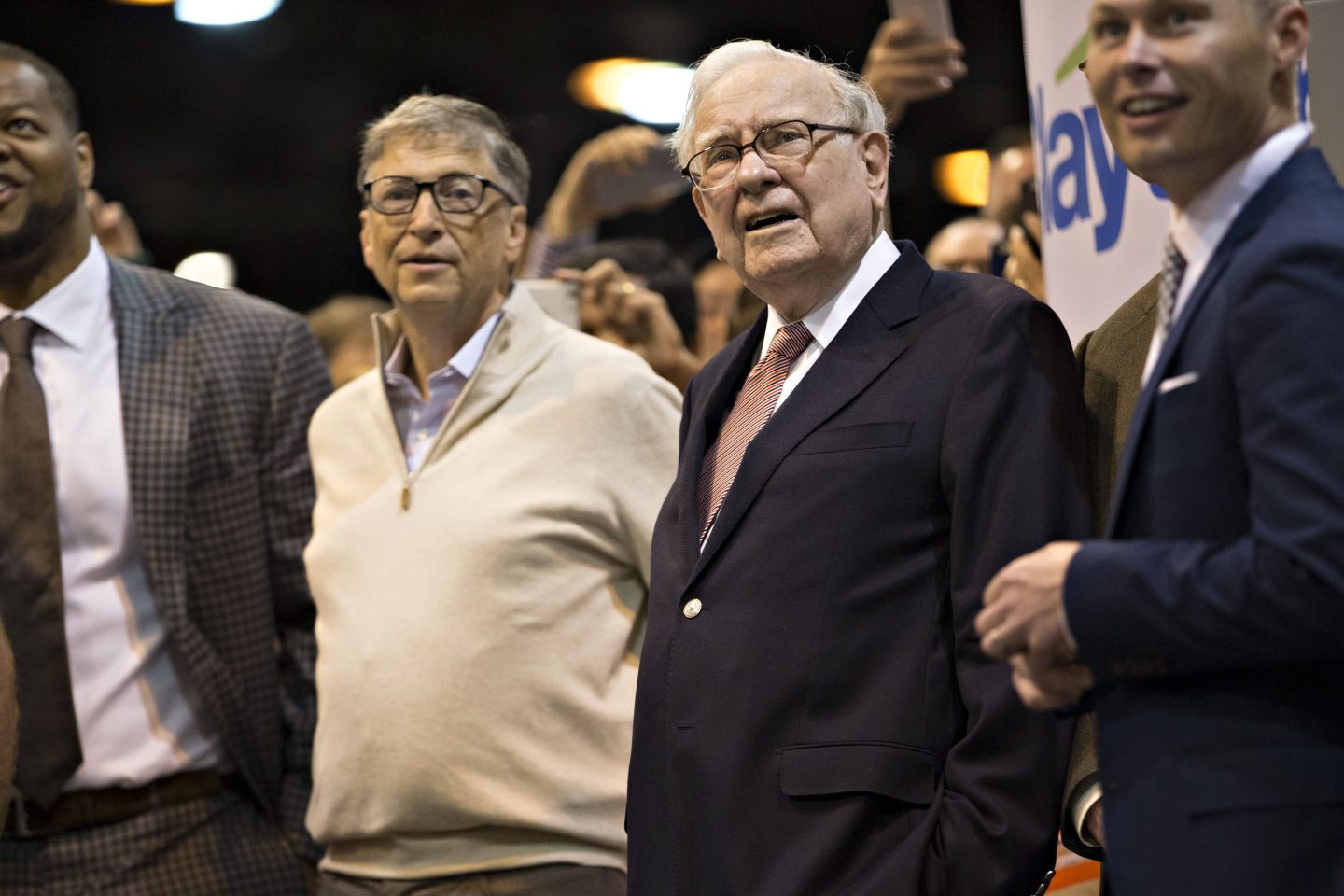It may be too early to issue a death certificate to the big business agenda in this Congress. But suffice it to say, its vitals are faint and fading. And its condition took a turn toward critical on Friday evening, when House Republican leadership suffered their latest stunning humiliation.
For those who didn’t spend their Friday rush hour glued to C-SPAN, a recap: the House GOP’s far-right flank revolted against a plan by Speaker John Boehner (R-Ohio) to fund the Department of Homeland Security, nearly prompting a shutdown of the anti-terrorism agency. Boehner and his team managed to salvage a last-minute extension, buying leaders another week, but the source of the conservative fringe’s angst remains. That group insists on bundling the department’s funding up with measures that would gut President Obama’s post-election executive order easing deportations of illegal immigrants. Yet the strategy faces a dead-end in a still closely divided Senate, a fact that newly-installed Majority Leader Mitch McConnell (R-Ky.) has spent the last several weeks demonstrating by putting it to a series of votes, only to have Democrats block it each time. Unfortunately for Boehner, his rump faction maintains a surprisingly durable immunity to observable reality. And so the Speaker’s stuck, caught between the imperative to avoid another disastrous (partial) government shutdown and a faction that won’t accept anything less than its own maximalist terms.
How — and whether — this gets resolved this week remain uncertain propositions. But this much is already clear: If Congressional Republicans have this much trouble fulfilling their most basic charge of keeping the government up and running, the corporate lobby shouldn’t hold its breath for complex trade agreements and fundamental overhauls of the tax and immigration codes. Corporate chiefs know this. It’s why the Business Roundtable — the group representing top CEOs in Washington, whose inability to re-center the debate is the subject of a Fortune story in the current issue — has dramatically narrowed its focus to what it calls the four key pillars of growth. And first among equals on that wish list is a return to rational budgeting.
“That was priority number one,” AT&T CEO Randall Stephenson, now one year into a two-year term as the Roundtable’s chairman, told Fortune last month. “If you can at least get some period of time with some stability and regular order in Congress and the administration, then you can begin to tackle issues that really drive economic growth.”
Indeed, Republican leaders built a guarantee they’d clear that admittedly low bar into their fundraising pitches to the business class during the 2014 midterm campaign. Boehner, McConnell and their allies talked up the need to assemble a “governing majority,” buzzwords for margins large and pliant enough to allow them to work their business-friendly will. The GOP’s midterm rout delivered the numbers, giving Boehner the biggest Republican majority in the House since the 1930s while handing McConnell the keys to the Senate. And upon taking power, McConnell made explicit that Republicans would seek to build on the humble ambition, first, not to be “scary.”
Mere weeks later, any grander plans appear to have collapsed along with that one in the dust cloud of Friday’s spectacle. After all, House Republicans just showed they can’t process their own acid reflux over Obama’s immigration order without nearly shuttering a critical federal agency. So the likelihood that group will manage to craft a messy, comprehensive legislative solution to the issue and then rally around it is vanishing, at best. Ditto for tax reform. Even before the meltdown, Senate Finance Chairman Orrin Hatch (R-Utah) acknowledged the tax code rewrite he’s charged with guiding through the upper chamber is likely to take longer than two years.
[fortune-brightcove videoid=4084650804001]
That leaves trade as the last remaining hope for near-term progress on the corporate agenda. And there, again, the Friday debacle spells bad news. The business lobby is ramping up a campaign to convince lawmakers to hand Obama fast-track negotiating authority on trade deals, a piece of leverage free-traders view as key to finalizing work on the massive Pacific Rim pact known as the Trans Pacific Partnership and another with European countries. But 52 House Republicans — fifty-two, 5-2 — just proved their willingness to shame their own leaders in order to register antipathy for Obama’s use of executive authority. So how willing will the same crowd be to voluntarily hand the president a longer leash to hammer out deals with foreign governments? They won’t do it simply because the business elite make the request.
Fresh evidence of that came over the weekend, when a parade of GOP presidential prospects appearing at the right-wing Club for Growth’s winter conference all called for dismantling the Export-Import Bank. That once-sleepy federal agency, long a sidelight in the broader trade debate, has taken on outsize significance as a litmus test for Republican free-market purity; at the confab, even the Republican field’s most prominent moderate, former Florida Gov. Jeb Bush, added his support to winding down the institution. No wonder, then, that lobbyists closely tracking the trade debate in Congress say they’ll need to round up significant numbers of House Democrats to carry the issue, with varying ranges that average out around 30. And they say that so far, the allied anti-trade forces of labor and environmental groups are winning the early argument back home by raising a ruckus in the districts of fence-sitting Democrats. That fight has yet to start in earnest, but considering the atmosphere, it’s already hanging by a thread.












